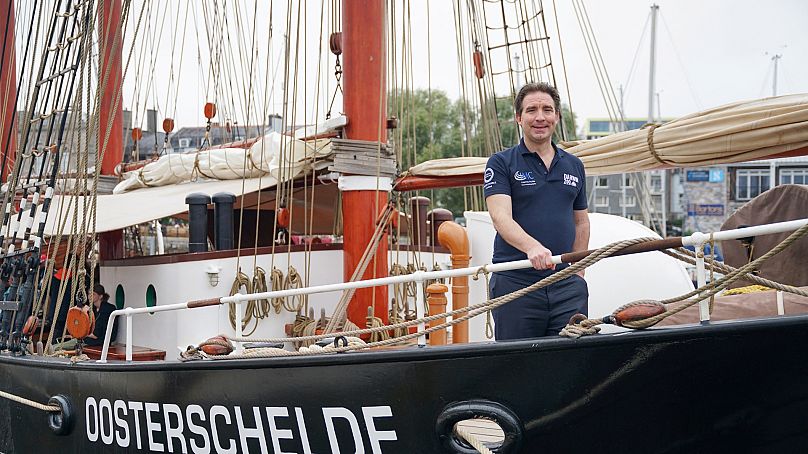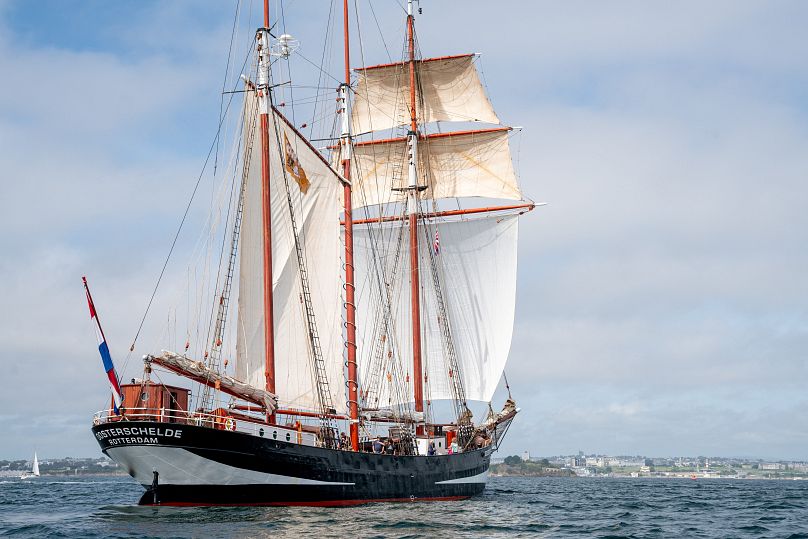The expedition hopes to visit 32 ports including some of the world's most remote islands and the Galapagos archipelago.
Almost two centuries after Charles Darwin's voyage around the world, environmentalists plan to follow in his footsteps.
 ADVERTISEMENT
ADVERTISEMENT
 ADVERTISEMENT
ADVERTISEMENT
They are undertaking a two-year journey across four continents to study endemic wildlife and boost conservation.
The group will set sail on board a 105-year-old schooner on Tuesday (15 August) from the southern English port of Plymouth.
This is where British naturalist Darwin's own expedition began in 1831, leading him to develop the theory of evolution by natural selection.
Where is the Darwin200 expedition sailing to?
The 40,000 nautical mile (74,080 kilometres) Darwin200 expedition hopes to anchor in 32 ports, including all the major ports visited by Darwin's HMS Beagle.
The group will travel on the Oosterschelde, a restored Dutch tall ship, to a number of remote locations like the Galapagos archipelago. This was where Darwin's observations on how related bird species differ from island to island helped inspire his seminal book on evolution, 'On the Origin of Species'.
"Charles Darwin was only 22 when he set sail from Plymouth on his life-changing voyage in 1831 aboard HMS Beagle, famously saying that it was by far the most important event in his life, determining his whole career," says Darwin200 Founder and Mission Director Stewart McPherson.
The voyage hopes to recreate this experience for members of the public and young environmentalists.
The ship's route includes some of the greatest wildlife sites and wonders on Earth - from Brazil's Atlantic rainforests to one of the most remote inhabited islands on the planet.
Studying climate change and conservation around the world
McPherson says researchers will study the impacts of climate change on coral reefs and shrinking wildlife habitats. The expedition will also plant thousands of trees to help mitigate problems such as the desertification of land, document ocean plastics and carry out surveys of seabirds, whales and dolphins.
"The point of this project is to show solutions, show real actions that all of us can do to help make a better future," McPherson said in an interview.
Throughout the journey, 200 young environmentalists will be selected to temporarily join the ship to be trained in conservation efforts.
Data collected during the voyage will form part of a citizen-science project where members of the public and students will be able to join weekly sessions live from the ship. It has been dubbed the "world's most exciting classroom".
Patrons of the project include Darwin's great-great-granddaughter - the botanist Sarah Darwin - and British primatologist Jane Goodall.
"We all know we're in the midst of the sixth great extinction with a lot of doom and gloom about the problems facing the environment, climate change and loss of biodiversity," Goodall said.
"This voyage will give many people an opportunity to see there is still time to make change."












